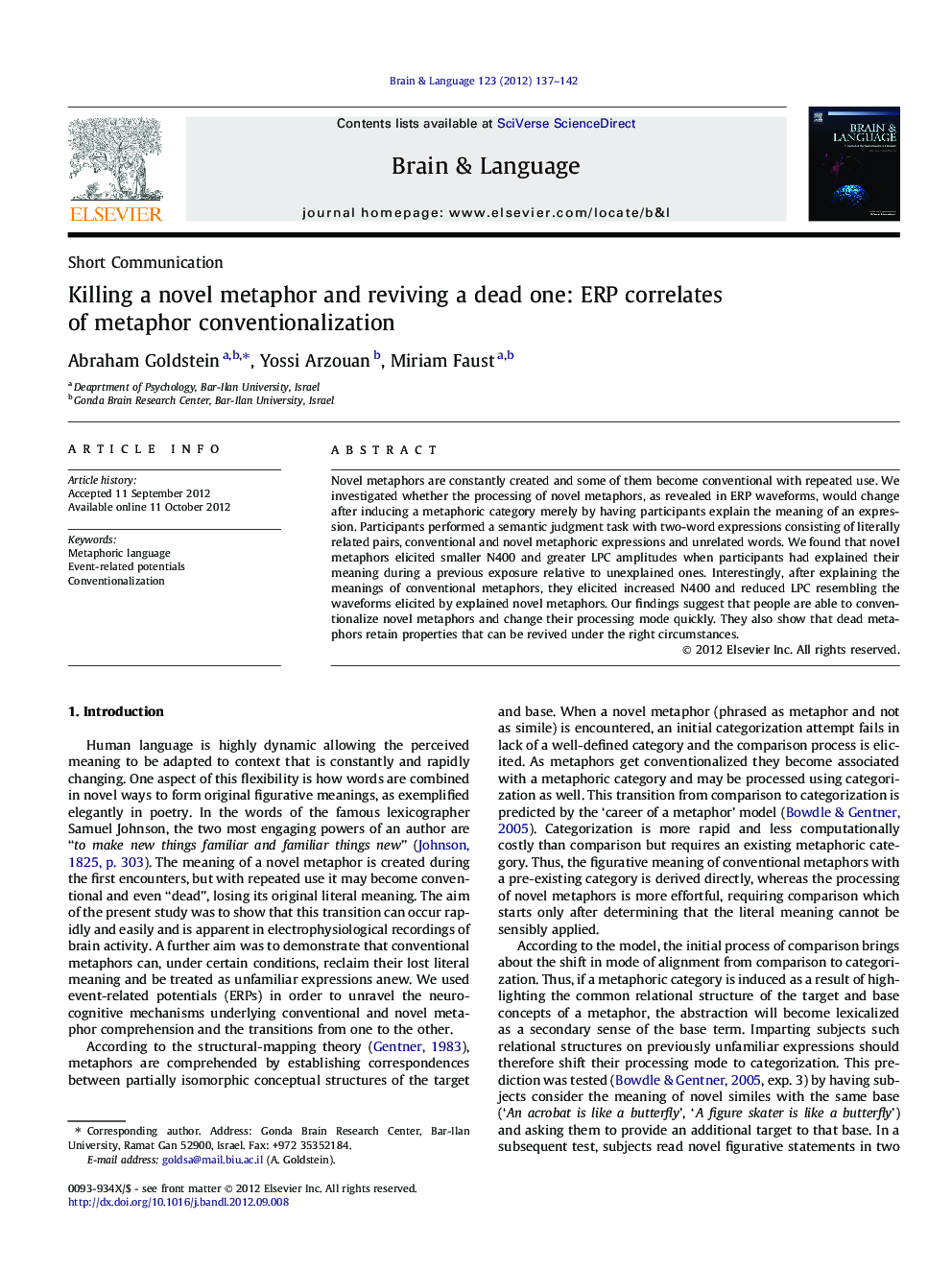| Article ID | Journal | Published Year | Pages | File Type |
|---|---|---|---|---|
| 925370 | Brain and Language | 2012 | 6 Pages |
Novel metaphors are constantly created and some of them become conventional with repeated use. We investigated whether the processing of novel metaphors, as revealed in ERP waveforms, would change after inducing a metaphoric category merely by having participants explain the meaning of an expression. Participants performed a semantic judgment task with two-word expressions consisting of literally related pairs, conventional and novel metaphoric expressions and unrelated words. We found that novel metaphors elicited smaller N400 and greater LPC amplitudes when participants had explained their meaning during a previous exposure relative to unexplained ones. Interestingly, after explaining the meanings of conventional metaphors, they elicited increased N400 and reduced LPC resembling the waveforms elicited by explained novel metaphors. Our findings suggest that people are able to conventionalize novel metaphors and change their processing mode quickly. They also show that dead metaphors retain properties that can be revived under the right circumstances.
► Novel metaphors were conventionalized by having participants explain their meaning. ► ERPs elicited by explained novel metaphors resembled those of conventional ones. ► ERPs elicited by explained conventional metaphors approximated those of novel ones. ► The transition from novel to conventional and vice versa occurs rapidly and easily.
